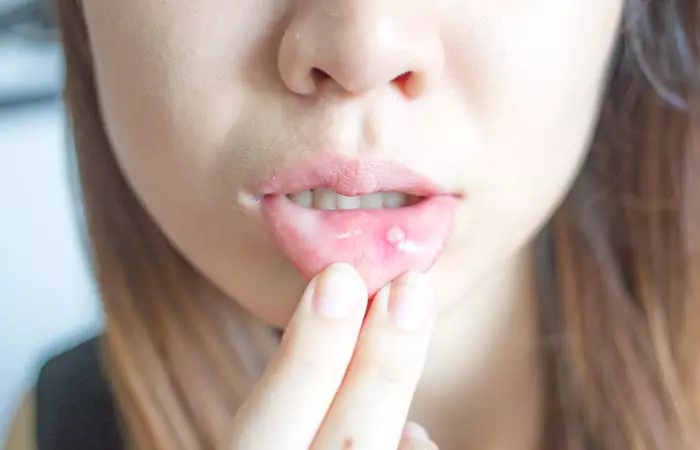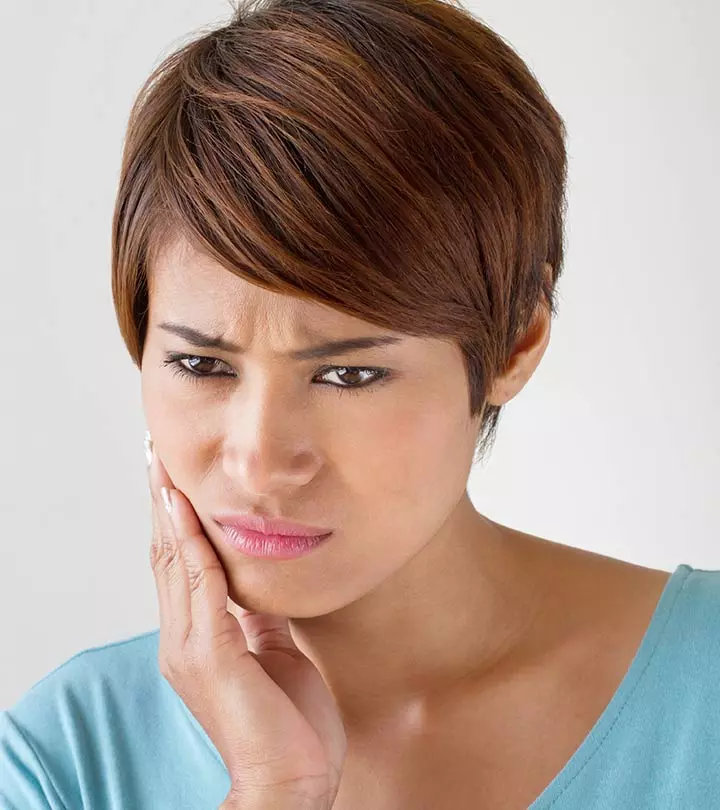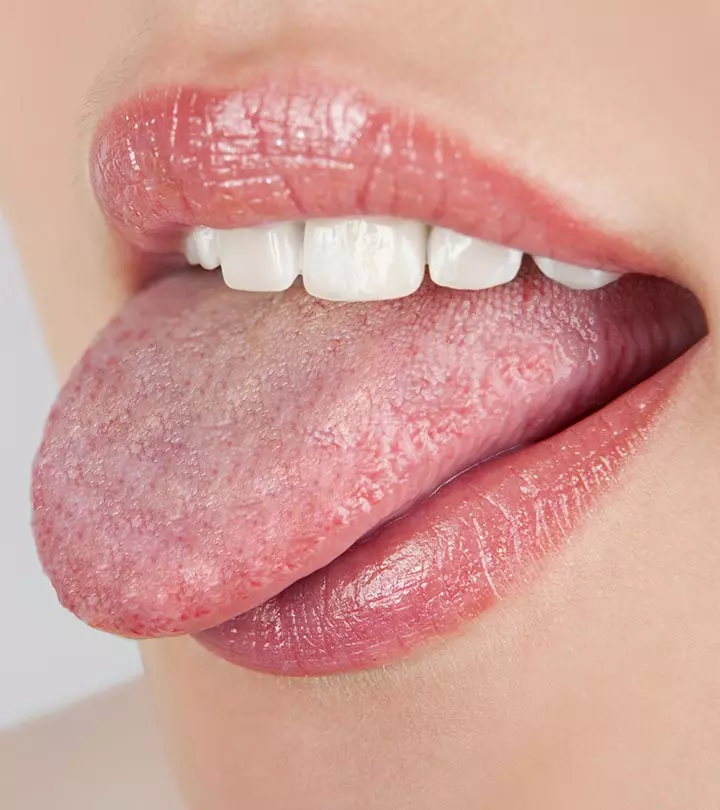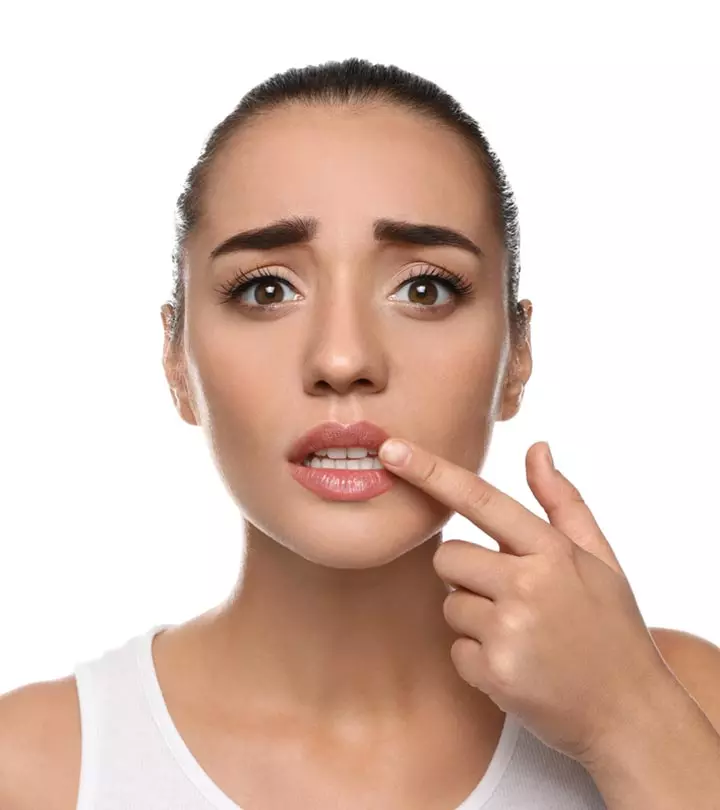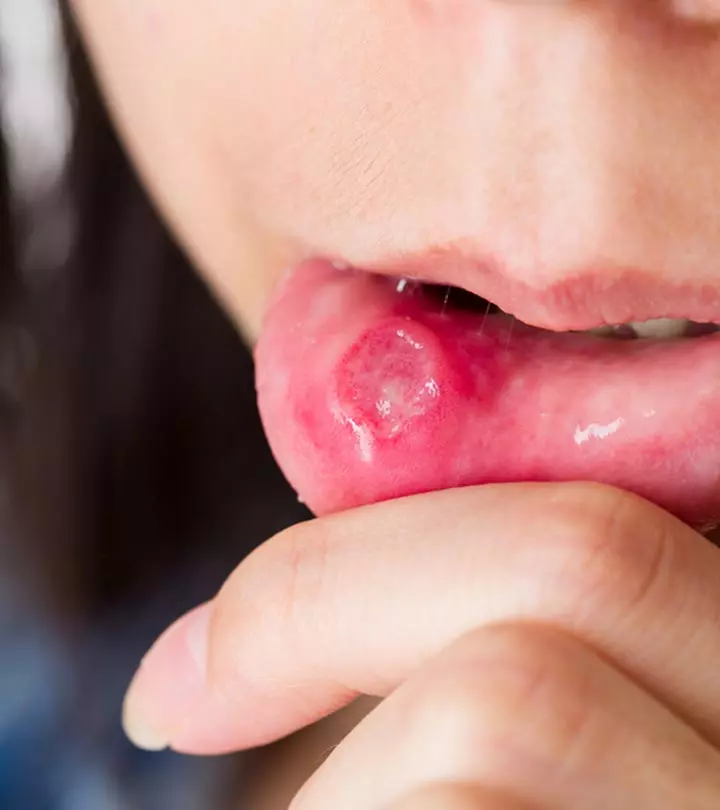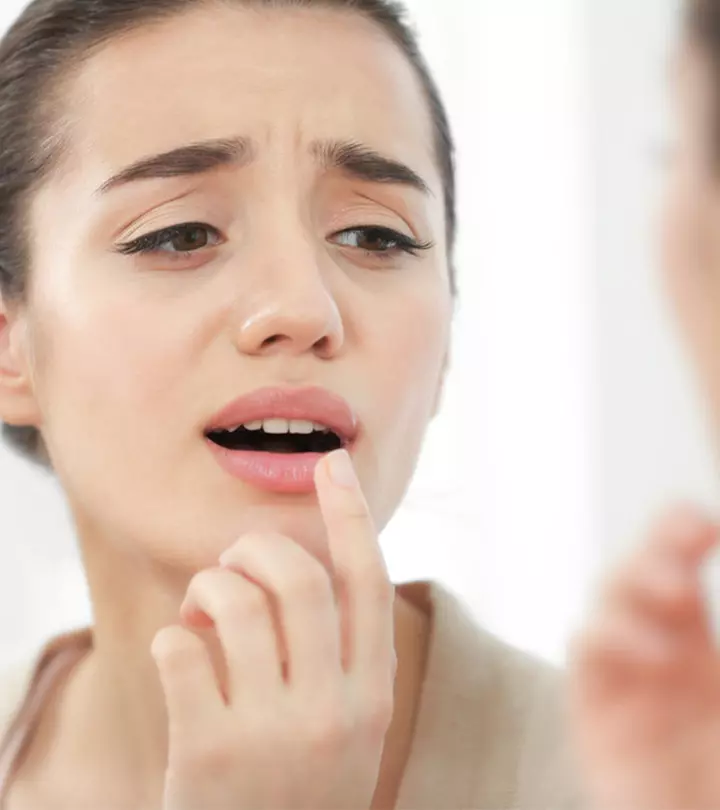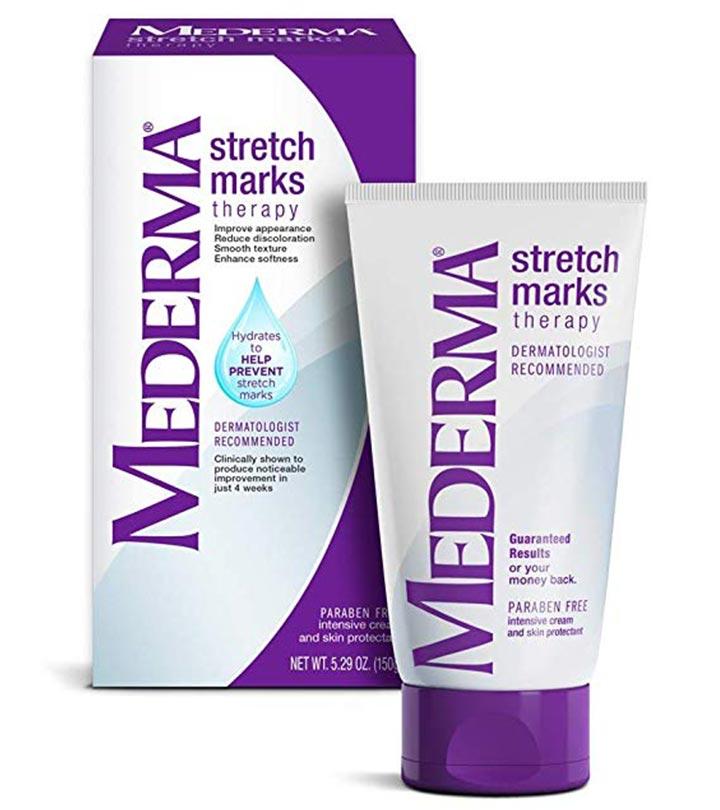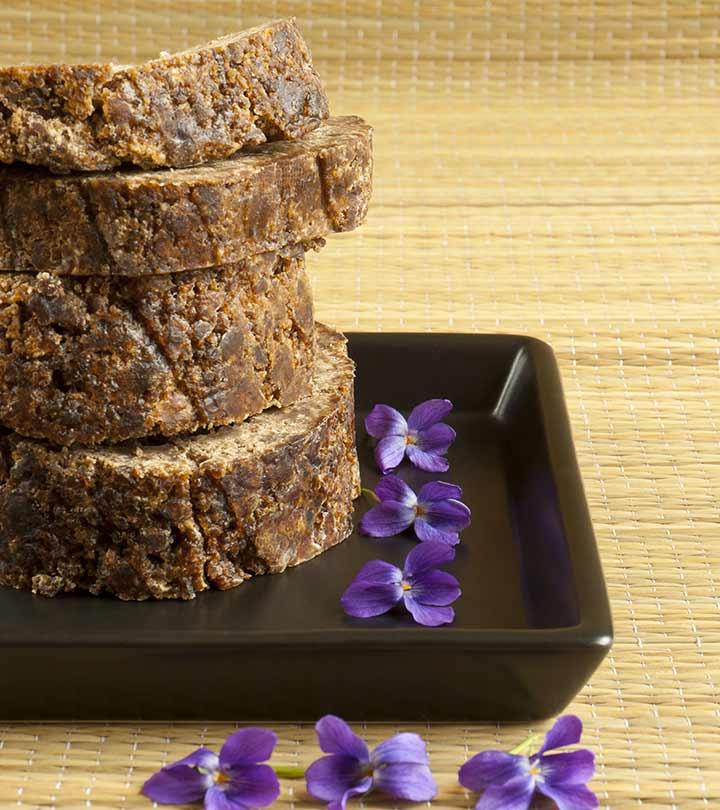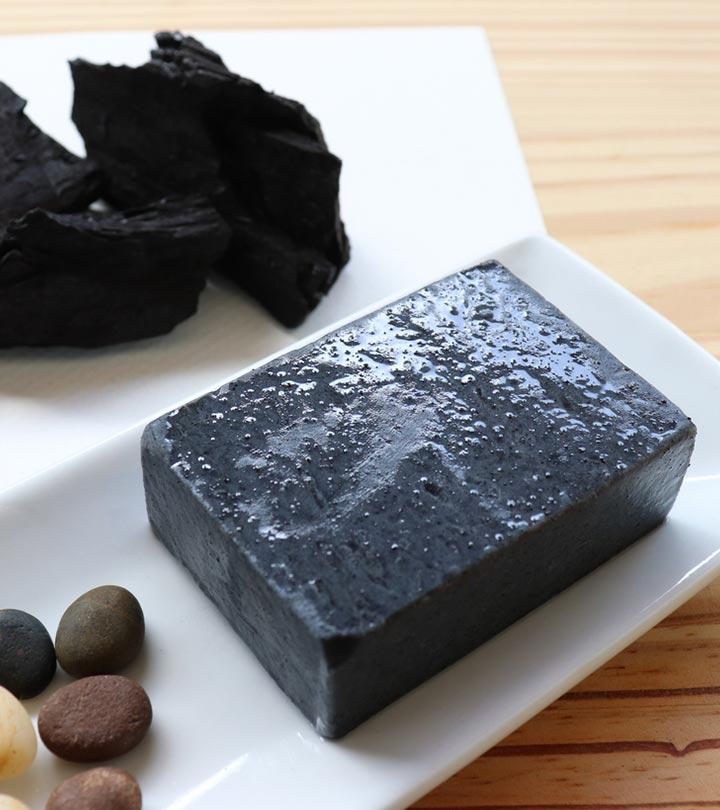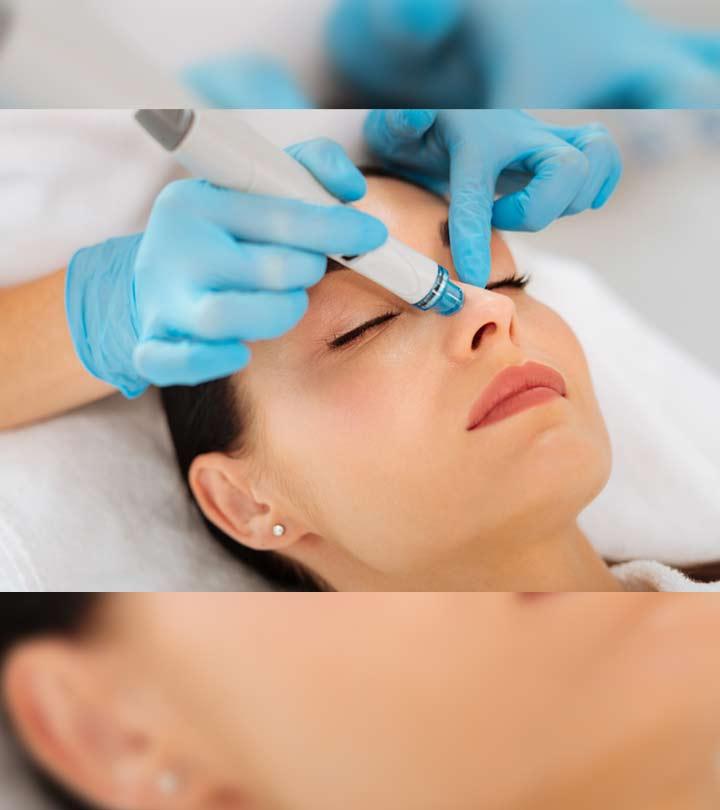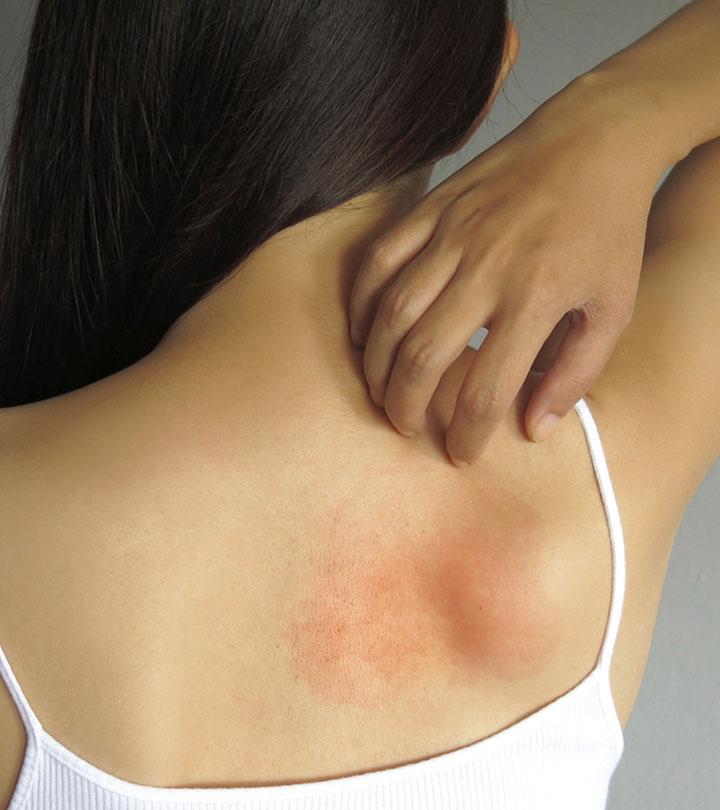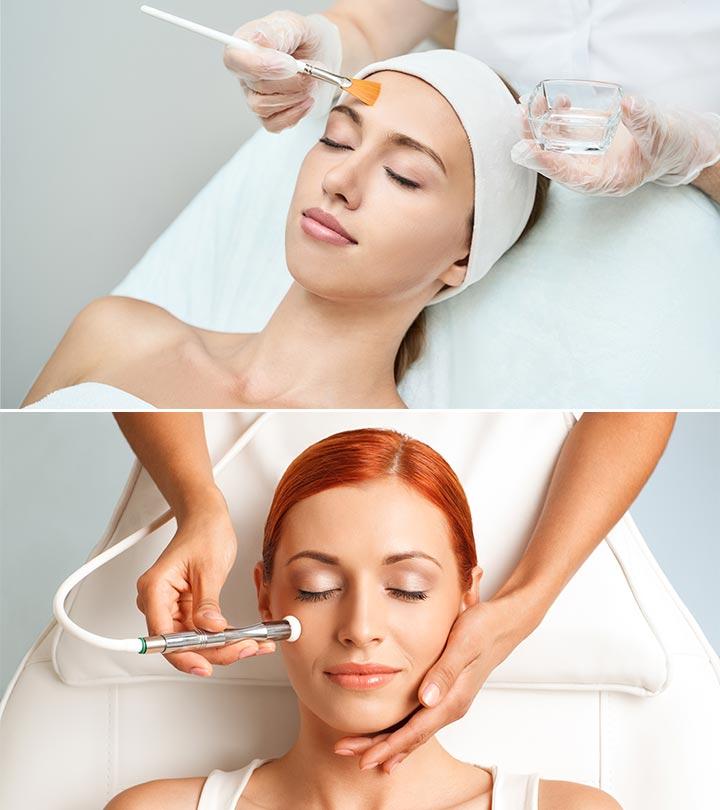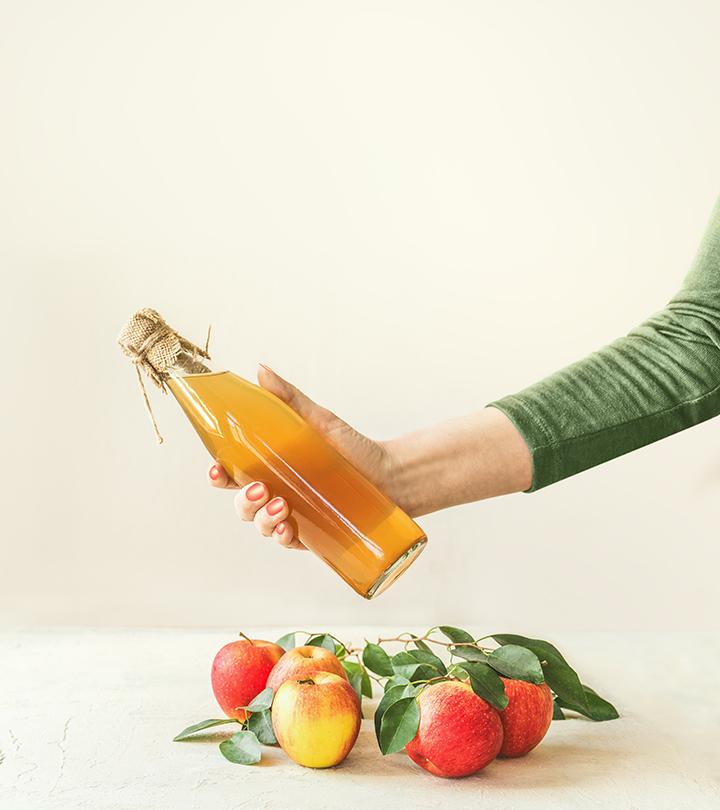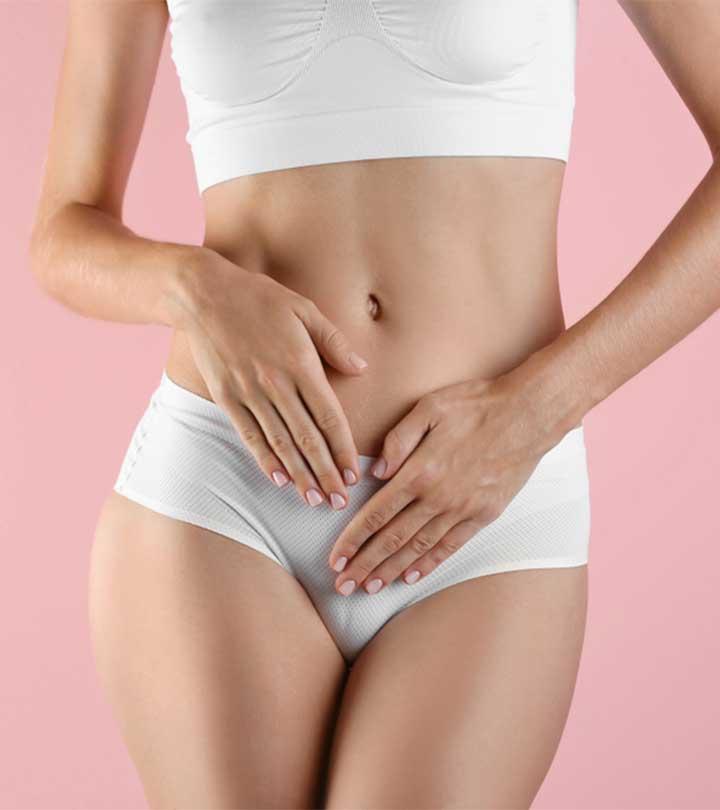15 Home Remedies For Canker Sores | Causes And Risk Factors
Treat painful mouth ulcers at home with natural ingredients and gentle care.
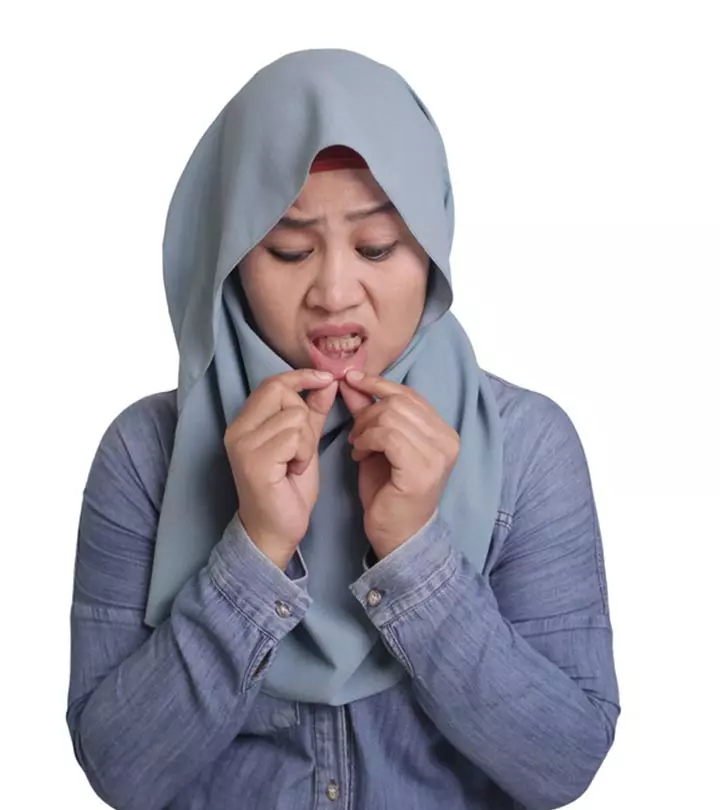
Image: Shutterstock
The shallow and small lesions that occur inside your mouth and at the base of the gums are called canker sores. Though not contagious, these painful oral ulcers can cause discomfort. It will be best to get rid of canker sores at the earliest to ease the pain while eating and talking.
The exact cause of canker sores is unknown. However, factors like medicines, stress, particular foods, and injury may trigger them.
You may use home remedies and over-the-counter medications to seek pain relief and speed up the recovery. Read on to know the different remedies available and prevention tips.
In This Article
What Is A Canker Sore?
Canker sores or aphthous ulcers are shallow ulcers that occur on soft tissues inside the mouth (1). They commonly look like reddish swellings with white or yellow tips. Canker sores are non-contagious. However, they can be painful and cause discomfort while eating and talking.
According to a study, 1 out of every 10 individuals is affected by canker sores. Further, 85% are affected by minor canker sores. The other two types, major and herpetiform canker sores have a lower prevalence rate of 10% and 5% respectively.
Minor canker sores usually go away on their own, but large and persistent ones may require medical care. These are not dangerous, and home remedies may help relieve the pain and irritation.
Read the next section to find out common home remedies for canker sores.
Ways To Get Rid of Canker Sores: 15 Home Remedies To Try
1. Salt Water Rinse
A saline rinse is a popular home remedy tested by many people to reduce pain and discomfort associated with oral sores.
Method
1. Dissolve a teaspoon of salt in a cup of warm water.
2. Swish it in the mouth for 30 seconds and spit.
3. Repeat every few hours.
A blogger faced continuous canker sore outbreaks and tried multiple over-the-counter remedies but found no relief until implementing a meticulous oral hygiene routine. They emphasized how comprehensive dental cleaning and a dietary shift reduced the frequency of canker sores. They said, “Every time I feel a canker sore coming on, I grab that salt water, and gargle and I’m feeling better the next day. It is the only thing I trust when it comes to my canker sores (i)!”
2. Honey
Honey can help reduce the pain, discomfort, and size of minor canker sores (2). Use raw and unpasteurized honey for best results.
Method
1. Apply raw honey to the sore and leave it on.
2. Repeat four times a day.
3. Alum Powder
Alum powder is a preservative used to pickle fruits and vegetables. It can significantly decrease the size of canker sores and reduce the pain and discomfort caused by them (3).
Method
1. Mix a pinch of alum powder with a drop of water to make a paste.
2. Apply the mixture to the canker sores.
3. Leave it on for at least a minute and rinse well.
4. Repeat this process once or twice every day until you see results.
4. Baking Soda
Baking soda is commonly used to reduce swelling, pain, and redness caused by canker sores.
Method
1. Dissolve a teaspoon of baking soda in a cup of water.
2. Swirl it for 30 seconds in your mouth and spit it out.
3. Repeat every few hours.
5. Aloe Vera
Aloe vera gel reduces canker sore pain and speeds up the healing process (4).
Method
1. Apply pure aloe vera gel to the canker sore.
2. Leave it on for a few minutes and wash it off.
3. Repeat every few hours.
6. Apple Cider Vinegar
Apple cider vinegar is a common home remedy to soothe inflammation and redness caused by canker sores.
Method
1. Mix a tablespoon of apple cider vinegar and two tablespoons of water.
2. Apply the solution to the canker sore with a cotton swab.
3. Repeat once or twice a day.
Note: Excess use of vinegar may damage the tooth enamel.
7. Hydrogen Peroxide
The hydrogen peroxide solution is also a common home remedy to clean the sore and reduce bacterial growth in the mouth. However, it may sting a little.
Method
1. Dilute a tablespoon of 3% hydrogen peroxide solution with a tablespoon of water.
2. Apply the solution to the canker sore with a cotton ball.
3. Leave it on for a few minutes and wash it off.
4. Repeat twice a day.
8. Coconut Oil
Coconut oil contains lauric acid that has antimicrobial and anti-inflammatory properties. It can help reduce inflammation caused by canker sores and maintain oral hygiene (5).
Method
1. Apply a few drops of virgin coconut oil to the canker sore.
2. Leave it on, and do not wash it off.
3. Repeat every few hours.
9. Chamomile
Chamomile tea can reduce inflammation and pain associated with mouth ulcers and canker sores (6).
Method
1. Apply a chamomile tea bag to the canker sore as a warm compress.
2. Hold it for a few minutes.
3. Repeat the process 3-4 times a day.
4. You may also drink a cup of chamomile tea with honey for relief.
10. Watermelon Frost
Watermelon frost is a common traditional Chinese home remedy for soothing canker sores. It is available in spray, tablet, and powder forms and helps reduce inflammation.
Method
1. Apply (or spray) the watermelon frost powder (or solution) to the canker sore.
2. Leave it on for a few minutes and wash it off.
3. Repeat not more than twice a day.
Note: Excessive use of watermelon frost is associated with mercury poisoning and may cause side effects like skin rashes and motor tics (like involuntary eye blinking, head-turning, and shrugging) (7). Hence, practice caution.
11. Vitamin B12 Supplements
Canker sores are often caused by vitamin B12 deficiency. In such cases, taking vitamin B12 supplements may help relieve mouth ulcers (8), (9). However, this treatment may work if you have a deficiency. Do not self-medicate and consult a doctor before taking vitamin supplements.
12. Ice Cubes
Rubbing ice on the sore may have a numbing effect and help relieve the pain and inflammation caused by canker sores.
Method
1. Crush the ice cubes. Wrap them in a piece of cloth.
2. Apply the cold compress to the canker sore.
3. Repeat 2-3 times a day.
13. Garlic
Garlic is a well-known natural remedy for healing canker sores. It contains allicin that reduces inflammation and promotes healing (10).
Method
1. Rub a small piece of garlic on the canker sore for 3-5 minutes.
2. Leave it on for 20 minutes and then wash it off.
3. Repeat twice or thrice a day.
14. Echinacea Tablets
Echinacea tablets are an herbal remedy for treating canker sores. They can reduce pain and lesion count to promote healing (11). However, consult a herbalist or a doctor before trying this remedy.
15. DGL Mouthwash
Deglycyrrhizinated licorice or DGL mouthwash is a natural remedy for canker sores. It is extracted from licorice and possesses anti-inflammatory properties that may help soothe canker sores and promote healing (12).
Method
- Dissolve a DGL tablet or add 1 teaspoon of DGL powder to warm water and mix well.
- Gargle with the solution for 30 seconds and then spit it out.
- Repeat this process two to three times daily or as directed.
Caution: Do not swallow the solution and be cautious if you have hypertension, as licorice may affect blood pressure (13).
 Quick tip
Quick tipCanker sores can be bothersome, but you can heal them at home with these tips and remedies. Oral hygiene is a crucial factor in preventing them. Check out the next section to learn more.
How To Prevent Canker Sores
- Brush and floss your teeth at least twice a day to keep out food particles and prevent bacteria growth and plaque formation.
- Avoid excessive use of oral hygiene products containing sodium lauryl sulfate. It may dry out and irritate the delicate mucus membrane.
 Quick tip
Quick tip- Avoid excessive spicy foods, acidic fruits, and other acidic beverages.
- Use a soft-bristled toothbrush to prevent injuring the gums (if you get canker sores often).
The exact reasons for canker sores are not known. However, certain factors are believed to trigger mouth ulcers.
Canker Sores: Causes And Risk Factors
Factors that can increase the likelihood of developing canker sores are:
- Family history
- Consuming acidic foods
- Infections
- Vitamin and mineral deficiencies
- Hormonal imbalance
- Allergies
- Stress
- Sleep deprivation
- Oral injuries (caused by bites, improper brushing, and dental appliances, such as braces and dentures)
Canker sores usually heal on their own. However, in some cases, you may have to visit a doctor.
It is a good idea to contact a doctor or dentist if a sore hasn’t healed in two weeks or the irritation is severe. They will look at the inside of your mouth and ask you about any additional symptoms you are having and your dietary habits.
A swab test, blood test, tissue sample, or inspection of particular organs may be necessary if they suspect another condition is causing the sores.
When To See Your Doctor
If the canker sores do not go away within a few days and persist for over two weeks, visit a doctor immediately. You may need immediate medical attention if the pain is unbearable and is accompanied by:
- Fever
- New sores
- Infection
- Sore lips
- Pus
Many times mouth and gum infections (like gingivostomatitis) may resemble canker sores. Visit a dentist for proper diagnosis and treatment.
Canker sores are reddish swellings with yellow or white tips that occur at the base of your gums and inside your mouth. While the exact cause is unknown, certain foods, stress, or medications may trigger them. Canker sores may not be contagious, but they are painful and cause extreme discomfort when eating and talking. You can use home remedies like salt water rinse, chamomile, or garlic to get rid of them. If the sores persist for over two weeks, accompanied by infection or fever, consult your doctor immediately.
Frequently Asked Questions
Can I pop a canker sore?
No, you cannot pop a canker sore as there is nothing to pop. It is a shallow wound.
Do canker sores turn white when healing?
Canker sores have a white center and a red border. The red color may start fading when it heals.
Why do I keep biting my canker sore?
When you get canker sores, the skin becomes more prominent and comes in the way when you eat. That is why you keep biting the canker sores.
Are canker sores caused by a virus?
No, they are not caused by a virus.
Should I worry about a canker sore?
Canker sores may heal after a week or two. However, it is advised to visit a doctor if the pain persists for more than 2 weeks. Otherwise, there is nothing to worry about a canker sore.
Key Takeaways
- Canker sores are not dangerous, but they can cause pain while eating and talking.
- Genetics, stress, allergies, acidic food, vitamin and mineral deficiencies, and sleep deprivation can cause canker sores.
- A saline rinse is one of the best ways to treat canker sores as it helps reduce pain and discomfort.
- You can also try honey, baking soda, apple cider vinegar, or vitamin B12 supplements to treat these sores.
Learn about the ways to get rid of canker sores with this video. Discover practical tips and soothing treatments that may help alleviate discomfort associated with these pesky ulcers. Hit the play button now!
Personal Experience: Source
StyleCraze's articles are interwoven with authentic personal narratives that provide depth and resonance to our content. Below are the sources of the personal accounts referenced in this article.
(i) Quick Relief for the Constant Canker Sorehttps://dentistrydonedifferently.com/2013/02/19/quick-relif-for-the-constant-canker-sore/
References
Articles on StyleCraze are backed by verified information from peer-reviewed and academic research papers, reputed organizations, research institutions, and medical associations to ensure accuracy and relevance. Read our editorial policy to learn more.
- Aphthous Stomatitis
https://www.ncbi.nlm.nih.gov/books/NBK431059/ - Efficacy of honey in comparison to topical corticosteroid for treatment of recurrent minor aphthous ulceration: a randomized blind controlled parallel double-center clinical trial
https://pubmed.ncbi.nlm.nih.gov/25019115/ - Efficacy of alum for treatment of recurrent aphthous stomatitis
https://www.ncbi.nlm.nih.gov/labs/pmc/articles/PMC5062179/ - Evaluation of the therapeutic effects of Aloe vera gel on minor recurrent aphthous stomatitis
https://pubmed.ncbi.nlm.nih.gov/23162576/ - Oil pulling for maintaining oral hygiene – A review
https://www.ncbi.nlm.nih.gov/labs/pmc/articles/PMC5198813/ - Chamomile: A herbal medicine of the past with bright future
https://www.ncbi.nlm.nih.gov/labs/pmc/articles/PMC2995283/ - Mercury intoxication presenting with tics
https://adc.bmj.com/content/archdischild/83/2/174.full.pdf - Effectiveness of Vitamin B12 in Treating Recurrent Aphthous Stomatitis: A Randomized Double-Blind Placebo-Controlled Trial
https://www.jabfm.org/content/22/1/9 - The Effectiveness of Vitamin B12 for Relieving Pain in Aphthous Ulcers: A Randomized Double-blind Placebo-controlled Trial
https://pubmed.ncbi.nlm.nih.gov/26025792/ - A new therapeutic candidate for oral aphthous ulcer: Allicin
https://pubmed.ncbi.nlm.nih.gov/18771860/ - Effect of Herbal Echinacea on Recurrent Minor Oral Aphthous Ulcer
https://www.ncbi.nlm.nih.gov/labs/pmc/articles/PMC6131317/ - Licorice mouth wash as treatment for mouth ulcer https://www.researchgate.net/publication/257353861_liquorice_mouth_wash_as_treatment_for_mouth_ulcer
- Bioactive Candy: Effects of Licorice on the Cardiovascular System
https://www.ncbi.nlm.nih.gov/pmc/articles/PMC6836258/
Read full bio of Dr. Priya Gill
Read full bio of Eshna Das
Read full bio of Swathi E





